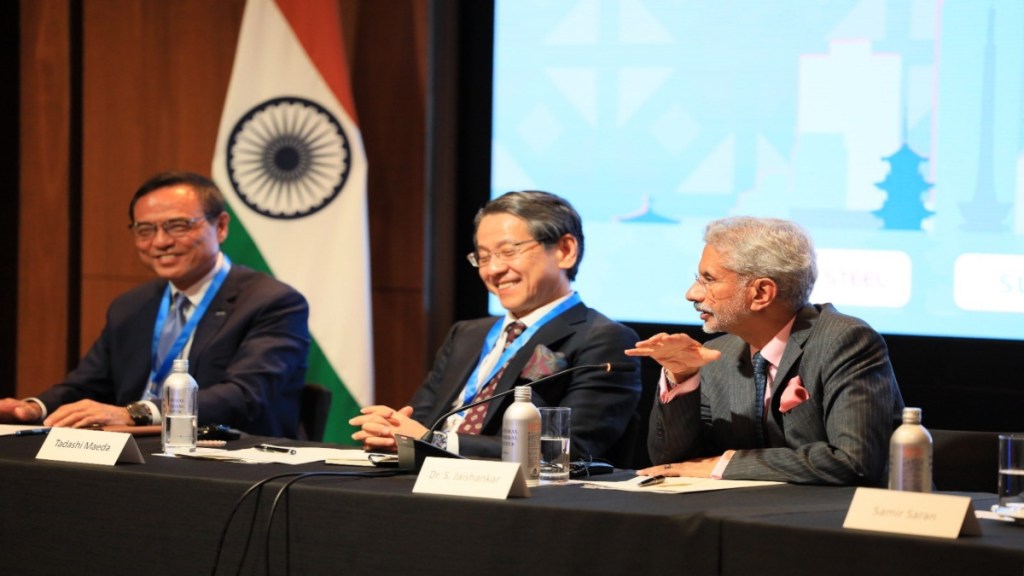At the Raisina Roundtable in Tokyo, External Affairs Minister S Jaishankar stressed the need for adherence to long standing agreements between nations, particularly in the context of India-China relations. His remarks come in the wake of escalating tensions between the two Asian giants, notably the border clashes in 2020 that marked a departure from over four decades of relative peace along the border.
The minister’s views on China’s behaviour reflects India’s growing concerns about Beijing’s assertive actions in the region, particularly its disregard for established norms and agreements. The border standoff in eastern Ladakh served as a wake-up call for India, prompting a reassessment of its strategic posture and the need to bolster defences along the disputed border.
On a two-day trip to Japan, Jaishankar elaborated on the changing world order, saying, “There is a reality of a very big power shift in the Indo-Pacific. When there are very big shifts in capabilities and influence and presumably ambitions, then there are all the accompanying ambitions and strategic consequences.”
“Longstanding agreements are not being necessarily observed, raising question marks about the stability of the environment in which we all operate,” he said, referring to the 1993 Border Peace and Tranquillity Agreement (BPTA) and the 1996 agreement on “Confidence Building Measures in the Military Field Along the Line of Actual Control in the India-China Border Areas”.
On Russia
His assessment of Russia’s changing geopolitical calculus adds another layer of complexity to the Indo-Pacific region. As Russia seeks closer ties with Asia amid strained relations with the West, India must navigate these evolving dynamics with foresight and strategic foresight to safeguard its national interests.
India-Japan
India’s deepening partnership with Japan emerges as a key pillar of its Indo-Pacific strategy, aimed at promoting regional stability and advancing shared interests in the face of common challenges. The Quad, comprising the United States, Australia, India, and Japan, plays a crucial role in upholding a free, open, and inclusive Indo-Pacific and countering China’s assertiveness in the region.
India and Japan are natural partners in a world headed towards “re-globalisation”, External Affairs Minister S Jaishankar said on Thursday, asserting that the two nations also share basic affinities, being democracies and market economies.
“The world is heading for re-globalisation with the building of resilient and reliable supply chains and trusted and transparent digital transactions,” he said. Adding, the “top 20 or 30 nations today are not what they were two decades ago. Even less so. What they were four or eight decades ago. Not only are the countries that impact us different but so are relative weight, importance and capability. As a result, new balances are being sought and occasionally achieved.”
He also said that India and Japan’s commitment to a free and open Indo-Pacific is being taken forward by the Quad each year. “The value of this contribution is also being increasingly appreciated across the world,” he said.
India’s proactive approach to regional security underscores its emergence as a key player in shaping the future of the Indo-Pacific. By leveraging strategic partnerships and upholding the rules-based international order, India aims to safeguard its national interests and contribute to regional peace and stability.

